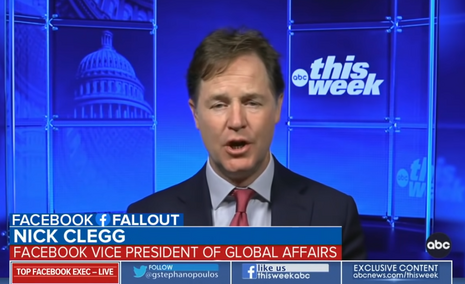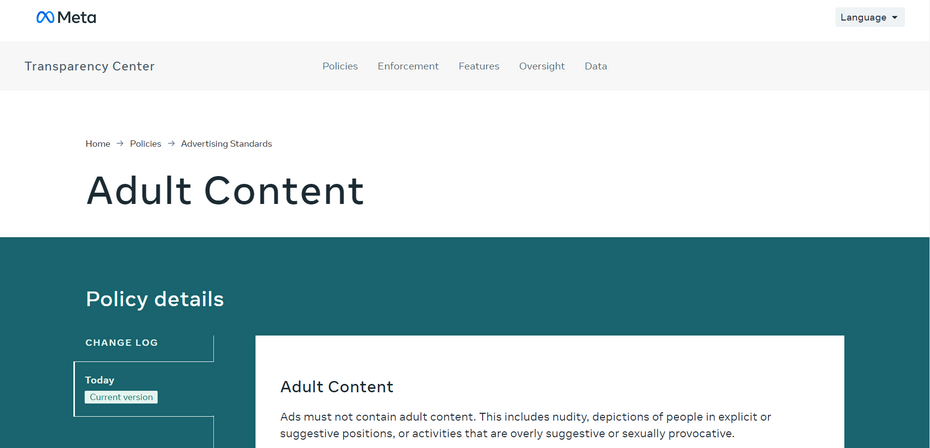The Field Of View is PATHETIC! Believable VR requires a MINIMUM of 220 Degree FOV. QUEST PRO does not even come close.
The display resolution is from years ago.
The device has over 127 ways to spy on you.
It is so over-priced, in a recession, that most readers just laughed at it.
It STILL looks like you are looking through a cardboard tube and gives zero sense of “reality” nor any “suspension of disbelief”.
You have to log in to Mark Zuckerberg’s domestic spying servers to use it.
The BIG APPS announced for it look like they were programmed by some beginner Pakistani coder!
Zuckerberg is still in the 1970’s with his VR ideas!
IT JUST SUCKS IN SO MANY WAYS!
Meta shares DROP 4.3% following launch of its new Quest Pro VR headset for $1,499 that CEO Mark Zuckerberg touts as a ‘gamechanger’ for the metaverse – but fails to addresses issues that plague the digital world
 Meta CEO Mark Zuckerberg announced the Quest Pro during the firm’s Connect 2022 event that is designed specifically for people to work in the metaverse – but it will cost $1,499.
Meta CEO Mark Zuckerberg announced the Quest Pro during the firm’s Connect 2022 event that is designed specifically for people to work in the metaverse – but it will cost $1,499.
Top Facebook Execs Named in Porn ‘Bribery’ Scheme
At least two executives at Meta (parent company of Facebook) were accused of participating in a bribery scheme to help elevate the reach of OnlyFans, a company notorious for porn.
 A newly revealed court filing exposed two Facebook executives and a third employee in a California lawsuit accusing them of “accepting bribes on behalf of OnlyFans as part of a scheme to help the adult platform dominate its industry rivals,” according to Gizmodo’s “exclusive” reporting on the document Wednesday.
A newly revealed court filing exposed two Facebook executives and a third employee in a California lawsuit accusing them of “accepting bribes on behalf of OnlyFans as part of a scheme to help the adult platform dominate its industry rivals,” according to Gizmodo’s “exclusive” reporting on the document Wednesday.
The lawsuit accuses Meta Global Affairs President Nicholas Clegg, Meta Global Business Group Vice President Nicola Mendelsohn, and a third employee identified as Cristian Perrella as having been “wired money” from OnlyFans owner Fenix International Limited.
Meta, corporate parent company over Facebook, Instagram and Whatsapp, supposedly prohibits ads from containing “adult content. This includes nudity, depictions of people in explicit or suggestive positions, or activities that are overly suggestive or sexually provocative.” The lawsuit’s revelations appear to run counter to the apparent goal of the platform’s “Adult Content” policy.
 Gizmodo reported that Meta “denied the claims.” However, “its lawyers are less focused on proving the allegations false, than arguing, even if true, that Meta would still be immune.” Meta also reportedly hid behind its Section 230 protections to claim that it was immune: “Meta further argued that, even if true, any decisions to penalize OnlyFans’ competitors would have been protected by the company’s First Amendment rights, and the limited liability protections offered by Section [230] of the Communications Decency Act.”
Gizmodo reported that Meta “denied the claims.” However, “its lawyers are less focused on proving the allegations false, than arguing, even if true, that Meta would still be immune.” Meta also reportedly hid behind its Section 230 protections to claim that it was immune: “Meta further argued that, even if true, any decisions to penalize OnlyFans’ competitors would have been protected by the company’s First Amendment rights, and the limited liability protections offered by Section [230] of the Communications Decency Act.”
Gizmodo reported: “Unnamed Meta employees were accused this February in an ongoing lawsuit of working under the table to secretly aid OnlyFans by getting its competitors ‘blacklisted’ online. The suit, filed in San Francisco federal court by a group of online adult entertainers, claims that Meta employees used databases meant to warn companies about safety and security threats to instead limit the visibility, and thus click rate, of entertainers working almost everywhere but OnlyFans.”
Northern District of California Senior District Judge William Alsup, according to a transcript reportedly obtained by Gizmodo, “asked an OnlyFans attorney outright whether the bribery claims were true during a Sept. 8 hearing: ‘Do you deny that that’s what happened?’ he asked.” The attorney reportedly “said their client hadn’t been required to answer that question yet, adding: ‘We will.’”
The revelations come after Facebook endured heavy fire in March 2022 after liberal outlet WIRED claimed extensive evidence of the problem of “child predation” and grooming on the platform. The piece about online “child predation” also insisted that Facebook isn’t taking proper action to combat sexual targeting of minors; in fact, Facebook reportedly reviewed at least one group and determined it did not violate its rules.
The porn giant OnlyFans boasts how it’s part of the “cultural zeitgeist” accepting “creators from all genres.” It currently touts 1,500,000-plus “content creators” and over 150,000,000 “registered users.”
Meta platforms Facebook and Instagram have sordid histories of button-mashing the censorship switch to silence speech that cuts against the left’s narratives on COVID-19, elections and abortion, among other issues. Former One America News Network personality Justine Murray blasted Facebook in October 2021 for censoring pro-life groups like Live Action, while protecting “smut merchants who exploit women and misuse their identities to pedal porn.”
Meta Platforms (META.O) unveiled its Quest Pro virtual and mixed reality headset, marking a milestone for Chief Executive Mark Zuckerberg’s break into the higher-end market for extended reality computing devices.
The new headset, unveiled at Meta’s annual Connect conference, will hit shelves on Oct 25 at a price of $1,500, and will offer idiot consumers a way to interact with virtual creations overlaid onto a full-color view of the physical world around them.
The launch is an important step for Zuckerberg, who last year announced plans for the device – then called Project Cambria – at the same time that he changed his company’s name from Facebook to Meta to signal his intention to refocus the social media giant into a company that operates a shared immersive computing experience known as the metaverse.
Zuckerberg has since poured billions of dollars into that vision. Reality Labs, the Meta unit responsible for bringing the metaverse to life, lost $10.2 billion in 2021 and has lost nearly $6 billion so far this year.
The Quest Pro features several upgrades over Meta’s existing Quest 2 headset, which overwhelmingly dominates the consumer virtual reality market.
Most strikingly, it has outward-facing cameras that capture a sort of 3D livestream of the physical environment around a wearer, enabling mixed reality novelties like the ability to hang a virtual painting on a real-world wall or have a virtual ball bounce off a real table.
The Quest 2, by contrast, offers a more rudimentary grayscale version of this technology, called passthrough.
The Quest Pro is lighter and slimmer than its predecessors, with thin pancake lenses and a relocated battery that sits at the back of the headset, distributing its weight more evenly while reducing overall bulk.
For fully immersive virtual reality, Meta has added tracking sensors to the Quest Pro that can replicate users’ eye movements and facial expressions, creating a sense that avatars are making eye contact.
PITCHING PRODUCTIVITY
Meta is pitching the Quest Pro as a productivity device, aimed at designers, architects and other creative professionals.
In addition to offering its own Horizon social and workspace platforms, the company has also made virtual versions of Microsoft work products like Word, Outlook and Teams available.
At a preview of the device days before its launch, Meta gave reporters a glimpse of the type of user it had in mind by showcasing apps like Tribe XR, a virtual training environment for DJs learning how to use complex equipment.
Tribe XR is already available in virtual reality, but a demonstration showed how passthrough technology may enable DJs to use the app to play real-world gigs, as it means they can look out past their virtual equipment at actual partygoers.
Meta plans to sell the Quest Pro in consumer channels to start, while adding enterprise-level capabilities like mobile device management, authentication and premium support services next year, executives said at the press event.
They said the device is intended to complement rather than replace the entry-level Quest 2, which sells for $399.99.
For now, that means the Quest Pro stops short of enabling the complex commercial applications Meta has suggested it wants its metaverse tech to support.
The company is still working on a mixed reality experience for its Horizon Workrooms app that would make a person’s avatar appear to be present in a real-world conference room with other users, which it is calling Magic Rooms.
Still, the Quest Pro’s price point puts it well under the cost of existing enterprise-focused devices like Microsoft’s Hololens 2, which was released for commercial use in 2019 and is already present in operating rooms and on factory floors.
reddit.com › r › oculus › comments › n0o1xy › oculus_quest_2_sucksOculus (Quest 2) Sucks : r/oculus – reddit.com
Oculus (Quest 2) Sucks I wasted over $800 on The Quest 2 for the controllers, and the elite strap. It breaks so easily because of an accidental drop or something. Valve would be so much better, but I don’t have a $7000 computer : (. Oculus products are waaaaay too expensive. It’s a total scam. I want something more durable, and better.
pcworld.com › article › 1348335Facebook doesn’t know what to do with the new $1,500 Meta Quest Pro …
Senior Editor, PCWorld Oct 11, 2022 10:32 am PDT. Mark Hachman / IDG. Meta’s new Meta Quest Pro is a $1,500 attempt to figure out what experiences people want in virtual reality. Just a few …
reddit.com › r › oculus › comments › k176fl › unpopular_opinion_on_quest_2_it_sucksUnpopular opinion on Quest 2 – it sucks : r/oculus
Having used the original Quest at work, as well as the Magic Leap and MSFT Halo (we have all of those and some others), I was super excited to grab a Quest 2. After a couple
